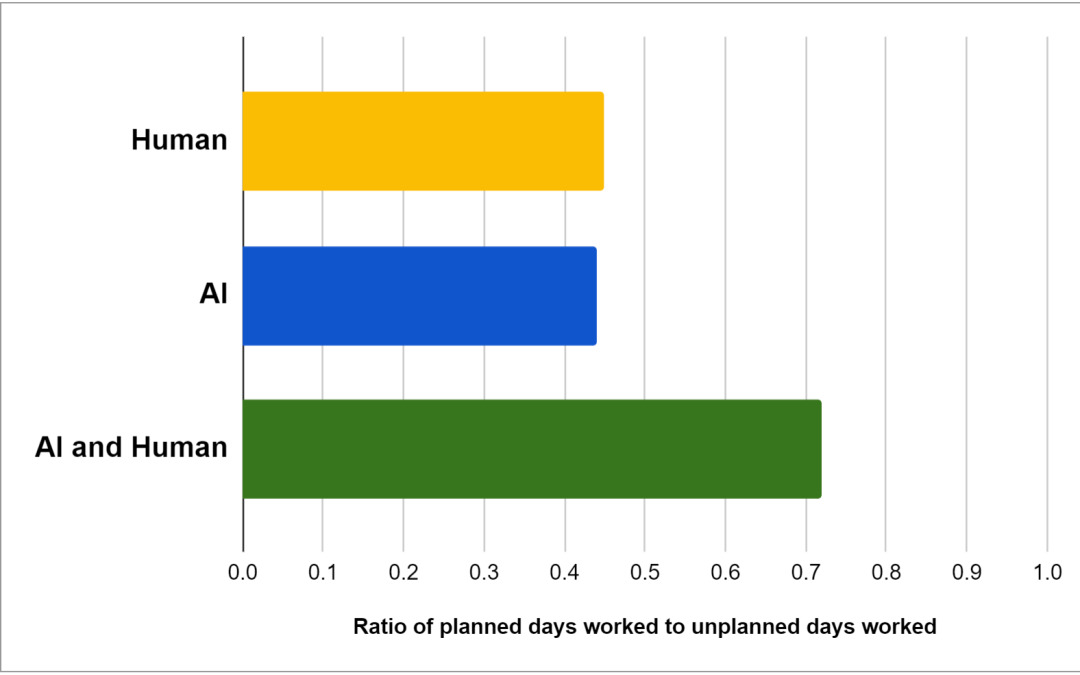February 27, 2024 – Inspira AI Corp., in collaboration with academics from Columbia University, Arizona State University, and the University of Wisconsin at Whitewater, has published a pioneering study on the efficacy of artificial intelligence (AI) compared to human management in altering workplace behaviors.
The study, titled “Evaluating the Impact of Artificial Intelligence Versus Human Management on Modifying Workplace Behavior” is co-authored by Benny Traub, Izzy Traub of Inspira AI Corp., and Dr. Paul W. Thurman, Dr. Phil Peper, and Dr. Jo Ann Oravec.
The research studied a group of remote employees of a digital marketing company, aimed at understanding how AI management systems perform against human managers in instigating changes to workplace behavior. Employees who formerly worked during unpredictable hours were asked to plan and work specific, predictable hours of each day, with coaching support by an AI and/or human manager.
This 14-week pilot study, which began in November 2023, is groundbreaking in its approach to compare the effectiveness of AI and human managerial strategies.
Can an “AI Manager” motivate employees to change their behavior at work? Reinforce positive habits? Improve their reliabililty?
The findings all indicate, yes it can.
Key findings include:
- Changing the behavior of remote employees who had established habits, proved difficult regardless of whether the manager was AI or Human.
- The AI Manager achieved a 44% success rate in getting employees to pre-plan their workdays in advance, with the human manager generating similar results at 45%. However; when the AI Manager worked in partnership with a human manager, together they achieved a 72% success rate in getting employees to pre-plan their workdays.
- The AI Manager was able to motivate the remote employees to show up for work on time 42% of the time, while the Human Manager succeeded only marginally better at 44%, and the combination of AI and Human Manager together resulted in 46% on-time success.
- Despite some challenges in adherence to schedules for both manager types, the AI Manager demonstrated promising potential in managing remote employees effectively, indicating that it may not be far behind Human Managers, even in the current state of the technology, which is rapidly advancing.
Study Overview:
Participants were divided into three groups: one coached by a human manager, another by an AI manager (featuring robotic process automations and a specialized chatbot ‘manager’), and the last group by both AI and human manager. Previously, these employees had no fixed work schedules. The study required them to plan their work schedule in advance, start work on time, and adhere to their scheduled hours.
Implications:
The pilot study, though limited by its sample size, indicates that AI management technology, developed by Inspira AI Corp., may already be almost on par with human management in modifying the workplace habits that were studied. The findings are significant, particularly considering the challenges associated with modifying workplace habits in remote settings, and the relative ease of implementation of AI systems to bring about behavior change.
About Inspira
Inspira AI Corp is an A.I. SaaS company pioneering new cognitive frameworks and autonomous agents for workforce optimization.
Media Contact: press@inspira.ai
See the Free Execution Guide:
“3 Steps to AI Workforce Optimization – A guide for managers and system integrators”

